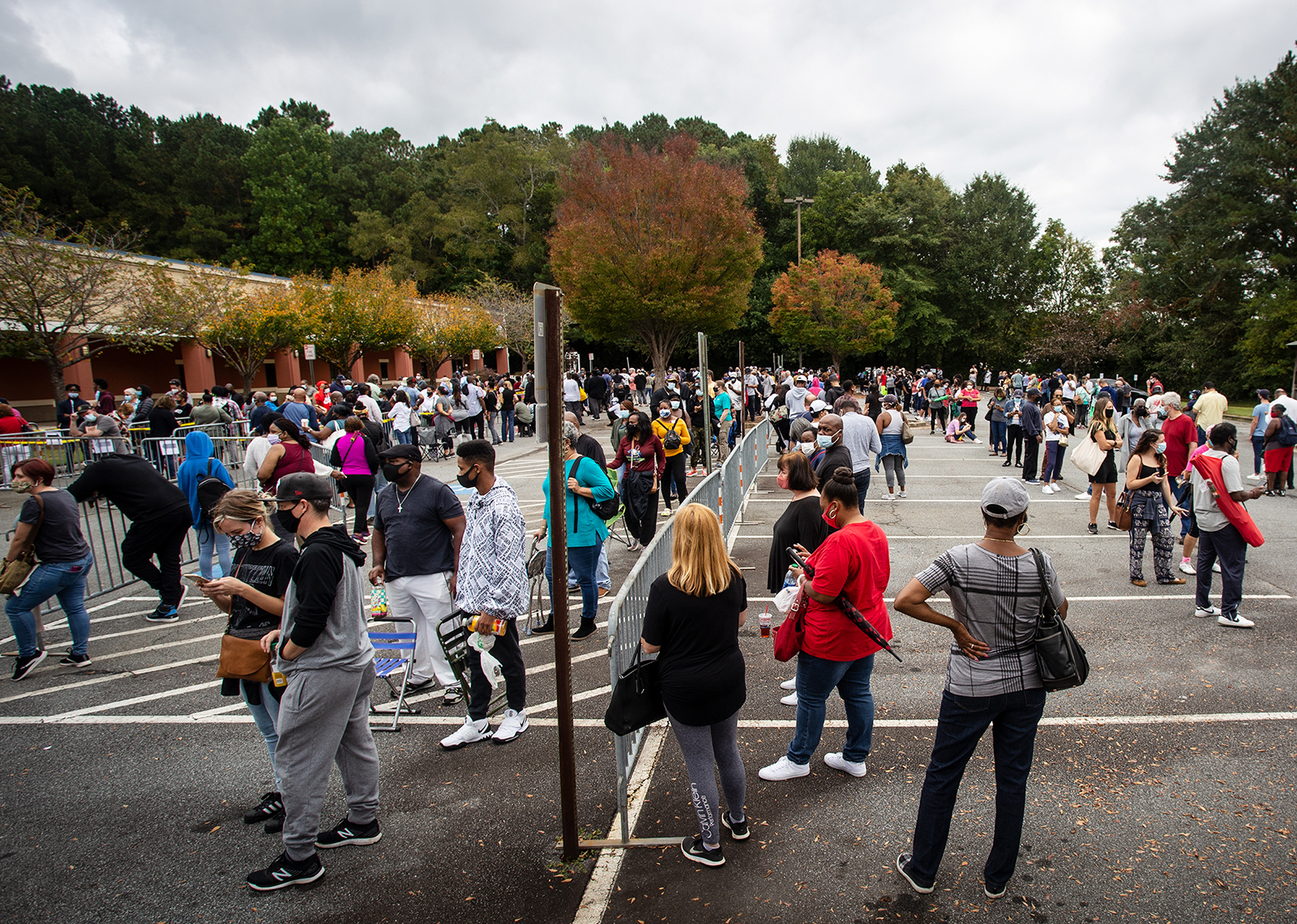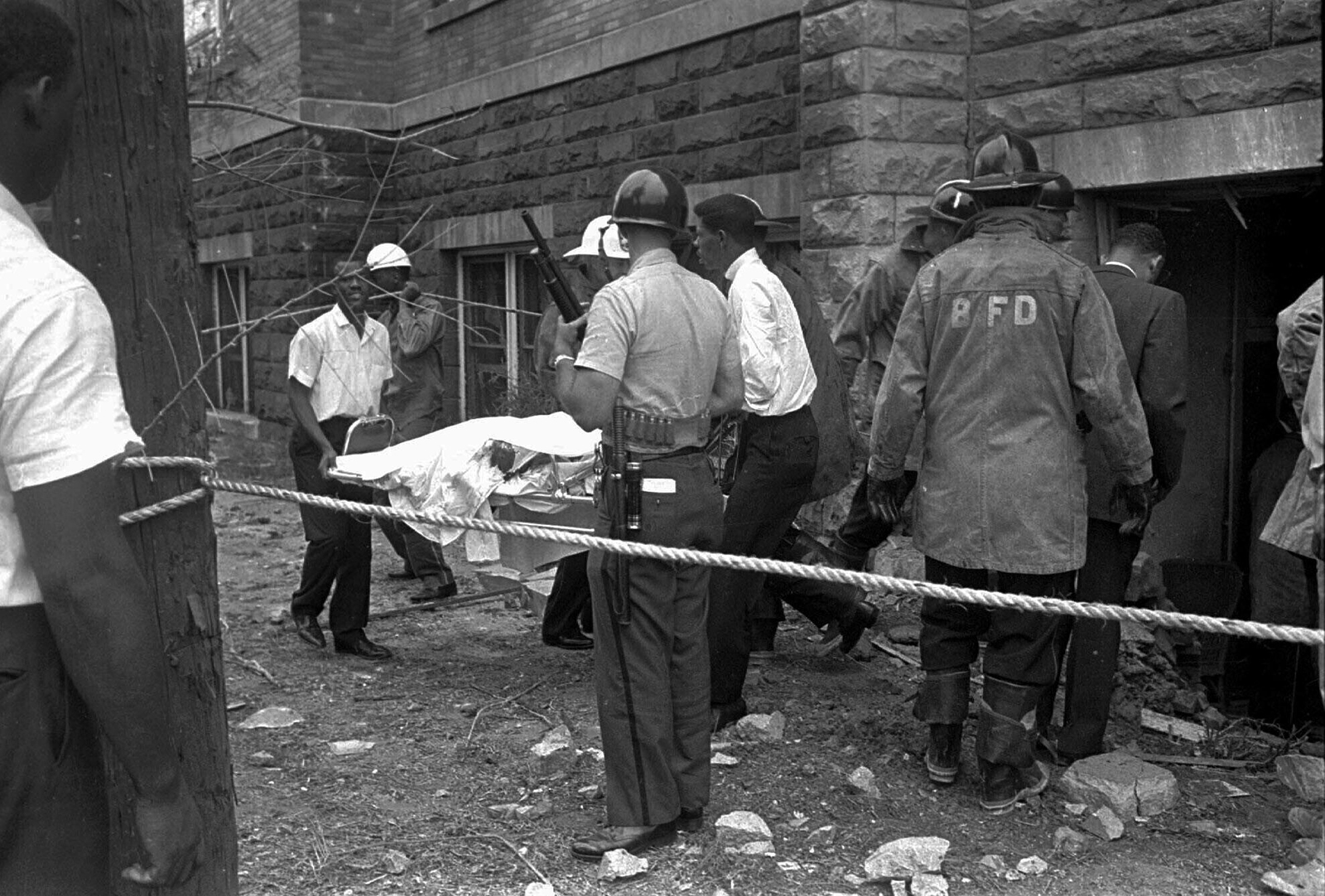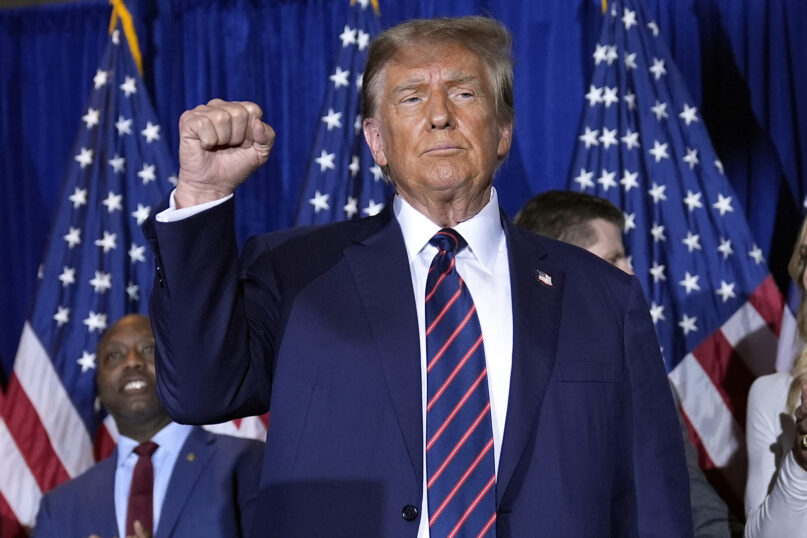(RNS) — Many Americans seem to be trapped in an abusive relationship with the Democratic Party. Every four years of late we are given an ultimatum: Elect our candidate or say goodbye to democracy altogether.
This year it’s Joe Biden who will save us from the threat of another Trump presidency, and the party and other Biden supporters are applying the formula on cue.
“If Biden is reelected, you can vote for whoever you want in 2028,” read one tweet that also went viral on Instagram. “But if Trump is reelected, you’ll never get to vote again.”
I assume that was a hyperbolic way of saying another Trump presidency will be a dictatorship, a widely shared conviction, and one we have good reason to believe, given that in 2021 Trump tried his darndest to remain in power against the will of the American people.
But at the heart of this way of campaigning is a deeply problematic assumption: The notion that, if the worst-case scenario were to play out and Trump became president-for-life, America’s story ends there.
It displays a poverty of imagination and a sense of denial about America’s history, an ignorance about Americans’ collective power. That fatalism is a much bigger problem than another Trump presidency. Trump is a symptom of a larger problem that precedes him, eclipses him and will outlive him.

Hundreds of people wait in line for early voting in Marietta, Ga., on Oct. 12, 2020. (AP Photo/Ron Harris, File)
We must enrich our imagination, develop a more profound understanding of our history and discover our collective power or we won’t be able to salvage what’s left of democracy from the rubble of the neofascist threats of this era, bolster it from future threats or build anything better.
Americans must find a way to imagine a political life outside of the four-year ultimatum. America has always been defined by dreams, especially those of America’s oppressed. Though our current world is far from perfect, the freedoms and pleasures we enjoy today were first dreams in the minds of our predecessors. There was a time when no one could imagine the end of chattel slavery or Jim Crow — except those who fought against it. There were people who could never imagine the right to vote or a Black president.
The collapse of these givens of our politics seemed nothing short of miracles when they happened. If we want to see radical change — be it something as mundane as an electable third-party candidate or as dramatic as toppling an American dictator — we must keep faith in miracles. I fear losing our capacity to dream far more than I fear losing at the ballot.
We can’t be blamed for how difficult it is to dream these days. After all, imagination is based on memory. I learned that when my former pastor challenged a room full of young adults to draw an alien that looked nothing like ones we’ve seen before. We all drew a blob. The imagination relies on analogy. This is why a sense of history is important.
Put another way, our oppression depends on historical amnesia. The opponents of progress want us to remain ignorant of the depths of our nation’s atrocities and the genius of resistance movements in American history. But if we don’t understand that we’ve already fought some previous iteration of today’s boogeymen — fascism, Christian nationalism or something else — we’ll feel powerless to stop them or else reinvent the wheel trying to do so.
I scratch my head when I hear talk about today’s anti-democratic movements as if they are new. Historian Robert Paxton suggests that “fascism (understood functionally) was born in the late 1860s in the American South,” referring to the Ku Klux Klan in its initial form in the 1800s.

FILE – Firemen and ambulance attendants remove a covered body from Sixteenth Street Baptist Church, where an explosion ripped though the structure during services, killing four Black girls, on Sept. 15, 1963. Sarah Collins Rudolph lost an eye and has pieces of glass inside her body from a Ku Klux Klan bombing that killed her sister and three other Black girls inside the Alabama church. (AP Photo, File)
The Ku Klux Klan was reborn in my hometown of Atlanta in 1915, when a Methodist preacher set a sword, American flag and a Bible in front of a burning cross atop Stone Mountain and led a group of Confederate veterans in swearing an oath to the “Invisible Empire.” If that’s not Christian nationalism, I don’t know what is.
Jim Crow was an inspiration for Nazi legal scholars, who looked to America’s homegrown fascism as a model for the Nuremberg Laws. As a result, when the world got up in arms about Nazism, Black Americans were able to say it was nothing new to them. “We Negroes in America do not have to be told what fascism is in action,” Langston Hughes told the Second International Writers Congress in Paris in 1937. “We know.”
The Martinican poet Aimé Césaire, a mentor to the anticolonialist activist and writer Frantz Fanon, argued that fascism was nothing more than Europe applying “colonialist procedure which until then had been reserved exclusively for the Arabs of Algeria, the coolies of India, and the blacks of Africa.”
I don’t dredge up these details to wallow in how terrible America has been. Rather, I want to remind us that the terrors that seem to loom ahead have been fought here before. Every Black liberation struggle on American soil has been an antifascist struggle, a struggle against Christian nationalism, a struggle against tyranny.
That’s good news for two reasons. First, we have examples of how to defeat them, and a basis for thinking that, even if the worst were to happen, America’s story may not be over. We don’t have to hand the future over to some abstraction, like “dictatorship.” We, the people, are not just an artifact of history. United in the struggle for freedom, we are a cause.
We can look to paragons like Ida B. Wells and Bayard Rustin and movements like the Big Six civil rights organizations or the Deacons for Defense and Justice for insight about strategy and organizing. These histories demonstrate the power of what happens when we decide to fight for justice together. We need these stories to recover a sense of agency against the technocratic, neoliberal market order that has arrested our imaginations. These histories have inspired successful pro-democracy struggles around the world.
My deepest concern is not who will win the 2024 election, but that the American people will forget the wisdom of Coretta Scott King, who said, “Struggle is a never-ending process. Freedom is never really won; you earn it and win it in every generation.”
Democracy has never been secured as simply as casting a ballot. We have always had to contend for it in the streets, and perhaps now it’s our turn. This is not a case against voting, even for what we keep calling the lesser of two evils. It’s a call to remember our past and our power, so we can break this abusive cycle. We need to dream bigger dreams than simply avoiding dictatorship. We need to fight for the promise of democracy.






